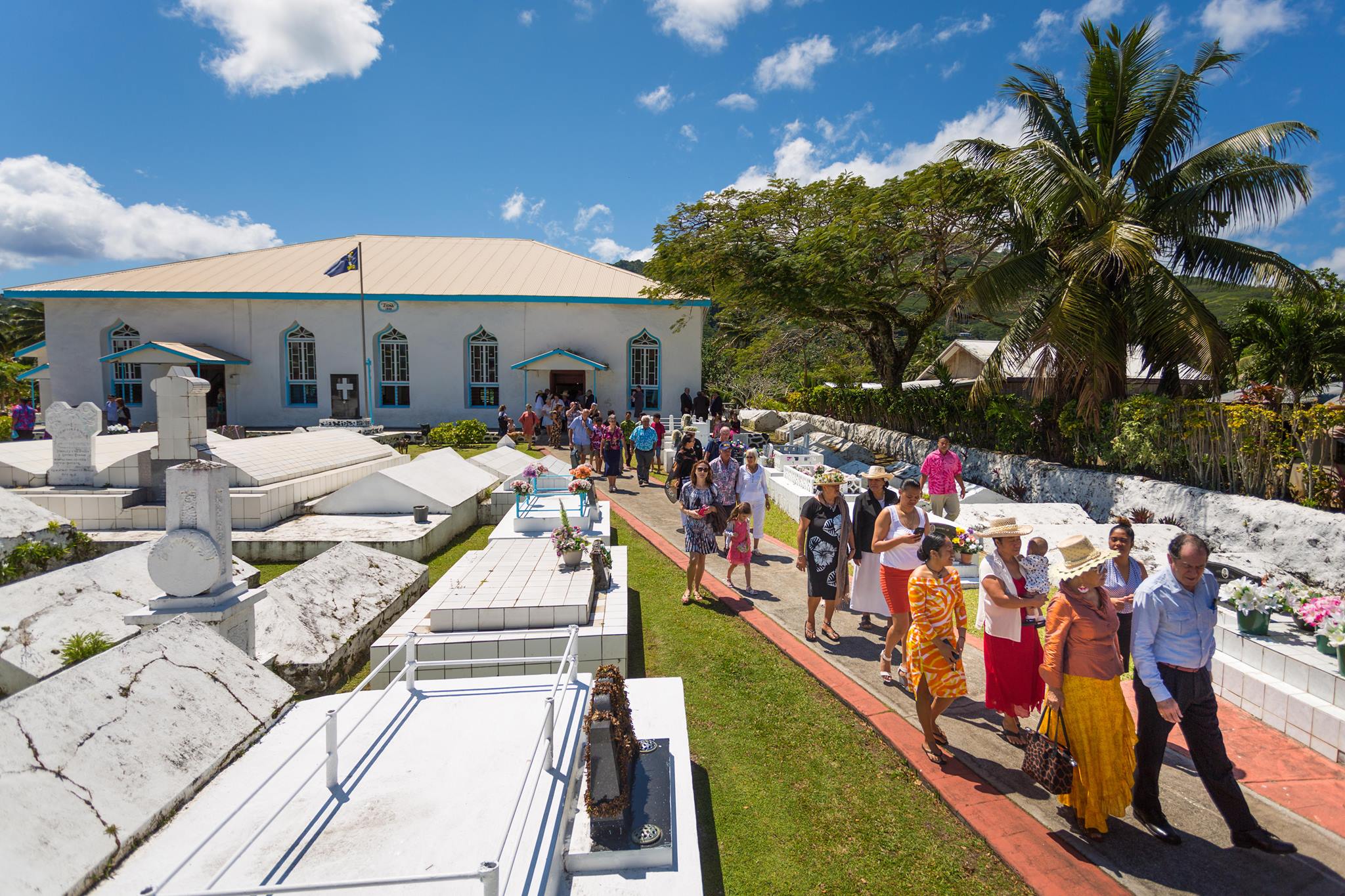Church talk: Unity through diversity in faith
Thursday 15 February 2024 | Written by Supplied | Published in Church Talk, Features

People leave a Rarotonga church after attending a Sunday service. COOK ISLANDS TOURISM/24021518
Our 200-year history of Christianity, whether we are part of our more traditional churches, or our more vibrant faith communities, should stand to confirm that the Lord lives in all our faith communities.
The Cook Islands has celebrated the bicentennial arrival of Christianity to our shores, first in Aitutaki in 2021, followed by Rarotonga in 2023, with Mangaia soon to join the 200-year commemorations later this year in June.
With the 1821 establishment of Christianity in Aitutaki, which spread throughout our paradise over a span of over 40 years, the way in how we as Cook Islanders understood the expectations of church attendance, was fairly common. There was that period when we as a people believed in the same doctrines, dressed the same way when attending church, the manner in how we praised and worshipped the Lord, was also very similar. There was definitely a time, whether you attended church in the mainland of Rarotonga, or in Penrhyn island, we had more similarities than differences, that identified us, that united us as members of the Christian community, here in the Cook Islands.
From the initial arrival of Christianity, the way in how we embrace, or approach church has changed significantly. Fast-forward 200 years, the very characteristics that once united us have become the very elements that have now somewhat divided us.
We have perhaps entered an unprecedented area where our various denominations, doctrines, dress code or perhaps lack of dress code, have become issues where we as believers struggle. For our more traditional churches, dress code has become an unbendable law. The demands for formal attire, such as suits, shirts, ties, long pants, dresses, and all women wearing hats, is a common sight in our more traditional churches. Whereas our “new-age” established churches, are a little less demanding with how we as Christians are expected to dress for church. Men dressed in shorts and t-shirts entering the house of the Lord does not cause heads to spin, or eyeballs to fall out in disbelief. Sleeveless dresses for women with a matching “ei katu”, is absolutely fine. Some of our churches are more accommodating in allowing a freedom of style, with dress codes, as well as in the way our Lord is praised and worshipped.
In line with praise and worship, we have faith communities that forbid the use of instruments in the church, the raising of hands, and the echoes of “Aleluia, Amene, Praise the Lord!” are unheard of phrases. There is the consensus that the House of the Lord is not the place for loud music, nor is it a place to display any forms of physical engagement. For our more traditional faith communities, the accepted behaviour in church, is to literally: “Be still and know that I am God.”
Our other faith communities who are often labelled as “break-aways” or “akono’anga ou”, find the culture of traditional church going as “old-fashioned” or “boring”. There is also the opinion that our more traditional churches are missing out, or have not yet discovered what it means to fully praise and worship the Lord. Others claim that the spiritual dryness within our more traditional faith communities, become the very reason why many depart in search of somewhere more fulfilling, greener pastures that overflow with what their spirits yearn for.
Our 200-year history of Christianity, whether we are part of our more traditional churches, or our more vibrant faith communities, should stand to confirm that the Lord lives in all our faith communities. Our differences should not divide us, but instead these very things should be what unites us.
We should be at a point in our faith lives, that we are able to respect and honour the diversity in how our various faith communities dress, or how we praise and worship our Lord. If a faith community’s style of dress, style of praise and worship is not your cup of tea, that does not give you or anyone else the right to pass judgment, or to condemn it as being wrong. Who are we to pass negative comments on our various expressions of faith within our Christian communities?
Jesus said “God is Spirit, and those who worship Him must worship in spirit and truth” (John 4:24). As long as our attendance of church, our worship of our Lord is from our spirits and is in truth, we as individuals, as faith communities have been given the freedom in Christ to choose how we express this. In all things, stay focused on our Lord and Saviour Jesus Christ.
Stay blessed.
- Reverend Haravei William and Mrs William of Ngatangiia CICC




















































